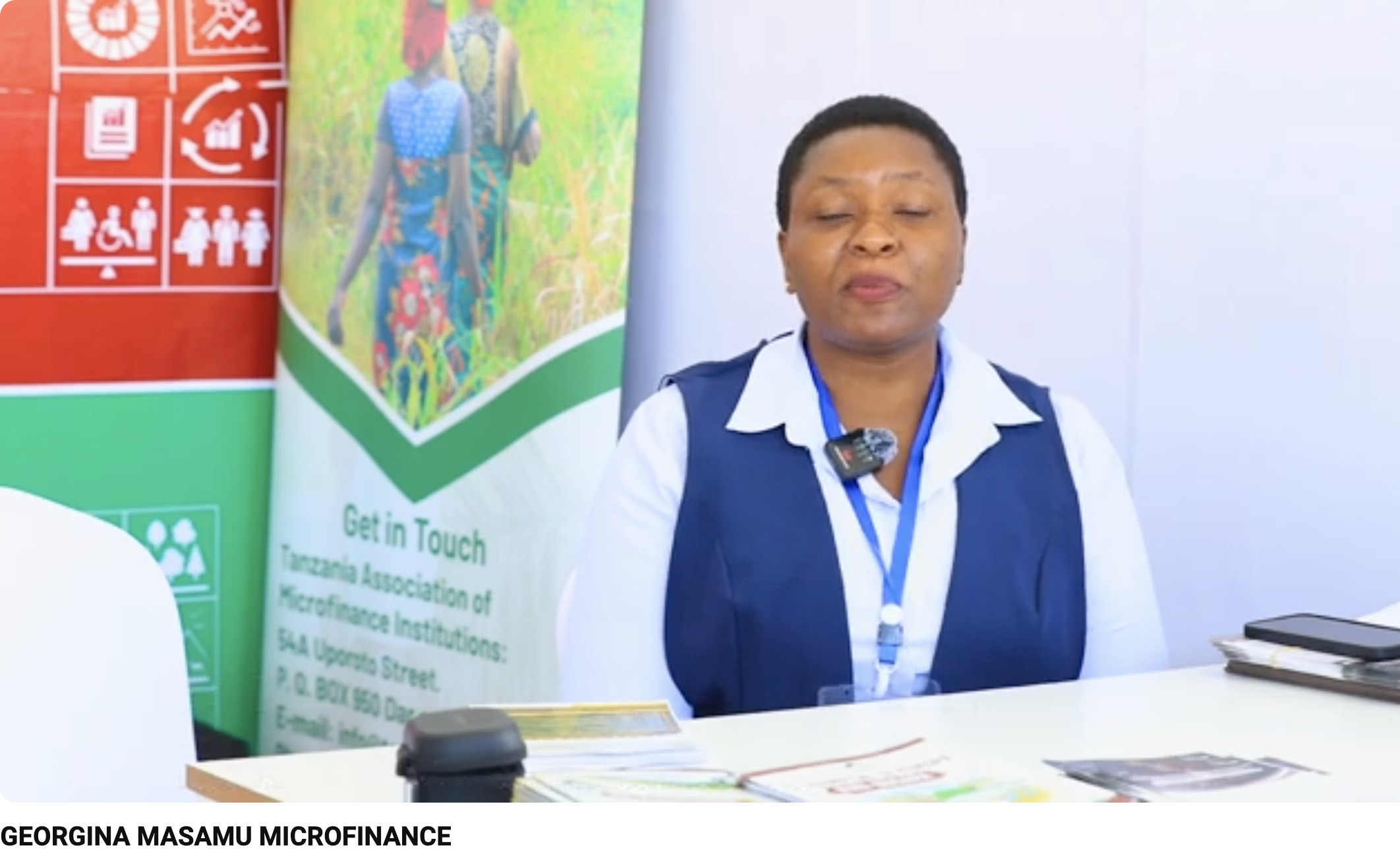
DODOMA, NANE NANE
Georgina Masamu, a representative of the Tanzania Association of Microfinance Institutions (TAMFI), took center stage at this year’s Nane Nane agricultural exhibition to shed light on the vital role that microfinance institutions play in Tanzania’s economic development. As the national federation for microfinance service providers, TAMFI is at the forefront of efforts to promote responsible lending and financial education among Tanzanians. The organization used this platform to explain its work and offer critical financial knowledge to the thousands of visitors attending the exhibition.
Masamu explained that TAMFI’s primary goal at the exhibition was to raise awareness of the organization’s services while also providing essential financial education to all who visited their booth. The focus of TAMFI’s educational efforts was financial literacy, which is crucial in empowering people to make informed decisions regarding borrowing and managing their finances. As she highlighted, many people borrow without fully understanding the implications of their loans, often leading to financial hardships. TAMFI aims to reverse this trend through their educational campaigns and resources.
Financial Education: A Core Component of TAMFI’s Efforts
During the Nane Nane exhibition, TAMFI shared several key publications aimed at educating the public about prudent borrowing. One of the most popular publications was part of the “Kopa kwa Busara” (Borrow Wisely) campaign. This brochure highlighted essential aspects that borrowers need to consider before taking a loan, such as understanding the cost of credit, repayment periods, collateral requirements, and the responsibilities of loan guarantors. Masamu noted that many borrowers do not fully grasp the implications of these factors, leading them into debt cycles that can be difficult to escape.
“Kopa kwa Busara” also explained the importance of borrowers knowing their legal rights and obligations, including understanding the penalties for late payments or defaulting on loans. The campaign stressed the need for potential borrowers to evaluate whether they truly need a loan and whether they can realistically meet the repayment terms. The ultimate message of the campaign is that borrowing should always align with well-thought-out financial goals, and that those goals should remain the borrower’s focus throughout the loan’s term.
In addition to the “Kopa kwa Busara” brochure, TAMFI distributed another educational booklet that delves deeper into the psychology of borrowing. It helps individuals recognize the importance of setting and adhering to financial goals, especially in the face of distractions from family or other external pressures. The booklet also addresses the dangers of borrowing from multiple lenders at the same time, a practice that often leads to unmanageable debt.
One of TAMFI’s other publications offered a crash course in basic numeracy skills related to savings and interest calculations. The booklet provided practical examples, such as how to calculate the interest on savings of 1 million Tanzanian shillings at 15% over one, two, or three years. This focus on basic financial skills is a testament to TAMFI’s mission to equip individuals with the knowledge needed to manage their finances effectively.
Budgeting and Goal Setting: Cornerstones of Financial Stability
A key theme throughout TAMFI’s presentations at Nane Nane was the importance of setting financial goals and sticking to them. Masamu emphasized that every borrower should have a clear purpose for the loan they take out and must ensure that the loan is used for that intended purpose. She pointed out that many borrowers deviate from their original goals, leading to financial mismanagement and eventual debt accumulation.
TAMFI also provided lessons on budgeting, an essential tool for anyone managing their finances. Masamu explained that budgeting should begin when one receives an income—whether from a salary, business, or any other source. Setting aside money for savings and keeping track of expenses can help individuals avoid unnecessary borrowing. Visitors to the TAMFI booth learned how to create a personal or household budget and how to incorporate savings into their financial plans.
Tackling the “Kausha Damu” Phenomenon
One of the most pressing issues TAMFI addressed during the exhibition was the growing problem of reckless borrowing, often called “kausha damu”. This phenomenon occurs when individuals borrow without proper planning or a clear understanding of how they will repay the loan. As a result, many people find themselves trapped in debt, unable to meet their obligations.
TAMFI strongly opposed this practice, urging visitors to set financial goals and plan their borrowing carefully. Masamu reminded attendees that loans should not be taken lightly and should only be used to meet specific, planned needs. TAMFI’s educational materials emphasized the importance of ensuring that loans are repaid on time and that borrowers remain focused on their original goals throughout the repayment process.
TAMFI’s Ethical Guidelines for Microfinance Institutions
In addition to educating the public, TAMFI is committed to upholding ethical standards within the microfinance sector. Masamu detailed some of the ethical guidelines TAMFI has put in place for its member institutions. These guidelines include ensuring that microfinance providers do not charge borrowers more than the interest rates set by regulators. For example, if the monthly interest rate is set at 3.5%, microfinance institutions are not allowed to exceed that rate.
Furthermore, TAMFI’s guidelines require that borrowers be given ample notice before any legal action is taken against them for defaulting on a loan. Microfinance institutions must provide at least three notices, spaced 60 days apart, before pursuing repossession of collateral or other legal measures. This approach ensures that borrowers have adequate time to settle their debts and that microfinance institutions act fairly and transparently.
Ethics in Client Relations and Internal Training
TAMFI also strongly emphasizes the behavior of microfinance employees. Institutions are expected to ensure that their employees treat borrowers with respect and follow all relevant rules and regulations. TAMFI encourages its members to provide ongoing training for their staff to ensure that they are well equipped to serve clients in a professional and ethical manner.
The association also fosters learning among its members, representing a wide range of microfinance providers, including banks with microfinance branches, SACCOS, and VICOBA groups. This diversity of membership allows for the exchange of ideas and best practices, helping member institutions to overcome challenges and improve their services.
A Call for Unity and Advocacy
As the voice of microfinance service providers in Tanzania, TAMFI plays a crucial role in advocating for the interests of its members and the sector as a whole. Masamu used the Nane Nane platform to invite all microfinance institutions that are not yet part of TAMFI to join the association. She emphasized the importance of having a united voice to address the challenges facing the microfinance sector, including the issue of reckless lending and borrowing.
TAMFI’s ultimate goal is to ensure that the microfinance sector continues to grow sustainably and responsibly. By promoting ethical lending practices and providing financial education to the public, TAMFI is making a significant contribution to the financial well-being of Tanzanians and the development of the country’s economy.

